Life
Sign up for our newsletter
We summarize the week's scientific breakthroughs every Thursday.
-
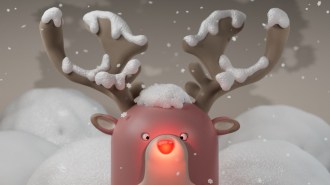 Physics
PhysicsHere’s how Rudolph’s light-up nose might be possible
Simple chemistry could give the reindeer his famously bright snout. But physics would make it look different colors from the ground.
-
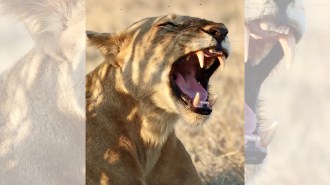 Animals
AnimalsLions have a second roar that no one noticed until now
A machine learning analysis of wild lion audio reveals they have two roar types, not one. This insight might help detect where lions are declining.
By Elie Dolgin -
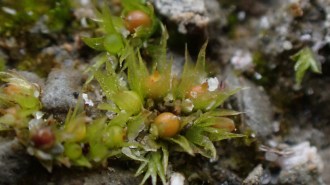 Plants
PlantsMoss spores survived in space for 9 months
The moss species Physcomitrium patens is the latest organism to survive an extended stay in the vacuum and radiation of space.
By Jay Bennett -
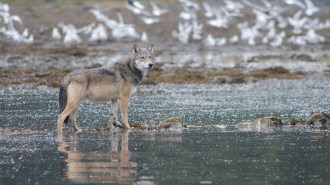 Animals
AnimalsA wolf raided a crab trap. Was it tool use or just canine cunning?
Video from the Haíɫzaqv Nation Indigenous community shows a wolf hauling a crab trap ashore. Scientists are split on whether it counts as tool use.
By Elie Dolgin -
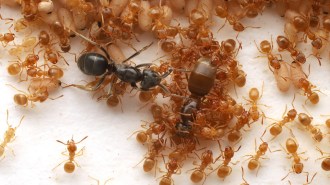 Animals
AnimalsThis parasitic ant tricks workers into committing matricide
Newly mated parasitic queen ants invade colonies and spray their victims with a chemical irritant that provokes the workers to kill their mother.
-
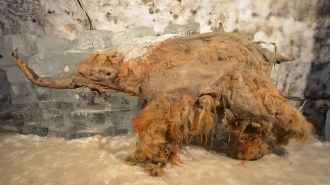 Animals
Animals40,000-year-old woolly mammoth RNA offers a peek into its last moments
Ancient RNA from Yuka, a 40,000-year-old woolly mammoth preserved in permafrost, can offer new biological insights into the Ice Age animal’s life.
By Meghan Rosen -
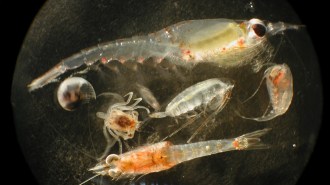 Oceans
OceansDeep-sea mining might feed plankton a diet of junk food
An analysis of mining plumes in the Pacific Ocean reveals they kick up particles sized similarly to the more nutritious tidbits that plankton eat.
-
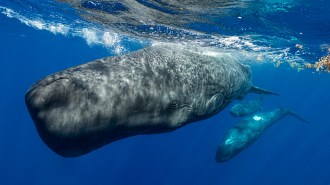 Animals
AnimalsAI eavesdropped on whale chatter. It may have helped find something new
Some “clicks” made by sperm whales may actually be “clacks,” but marine biologists debate what, if anything, that means.
- Animals
This fly’s flesh-eating maggot is making a comeback. Here’s what to know
After a decades-long hiatus, new world screwworm populations have surged in Central America and Mexico — and are inching northward.
By Carly Kay -
 Neuroscience
NeuroscienceTo decode future anxiety and depression, begin with a child’s brain
A child-friendly brain imaging technique is just one way neuroscientist Cat Camacho investigates how children learn to process emotions.
-
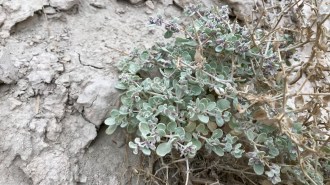 Plants
PlantsA special shape shift helps a shrub thrive in blistering heat
A microscope reveals an algae-like adaptation that might future-proof crop photosynthesis in extreme heat.
-
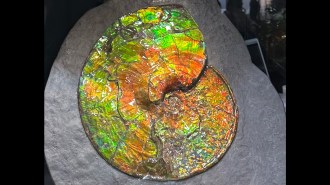 Materials Science
Materials ScienceWhat causes the rainbow shimmer of ammolite gems?
Ammolite gems’ fabulous colors arise from delicate assemblies of crystal plates.